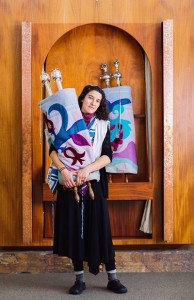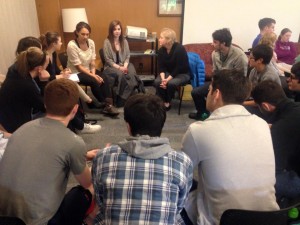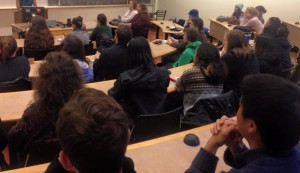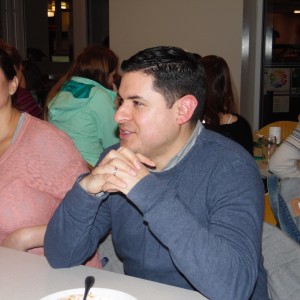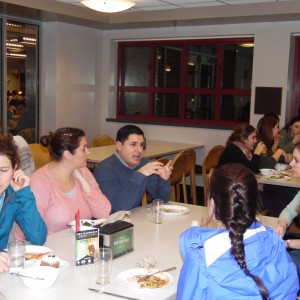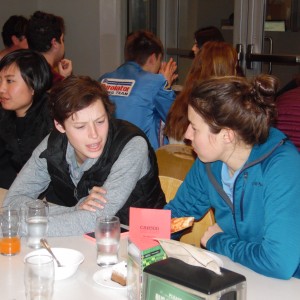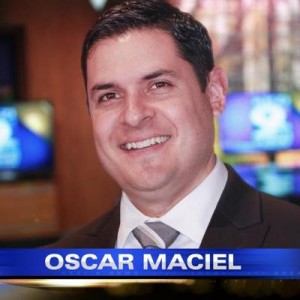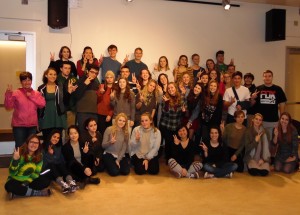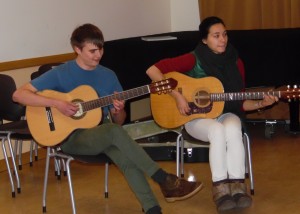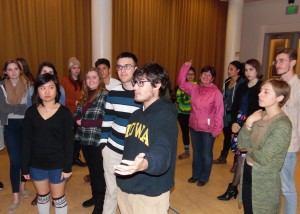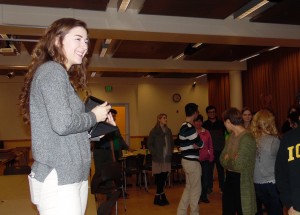By: John Fritz & Xander Cuizon Tice
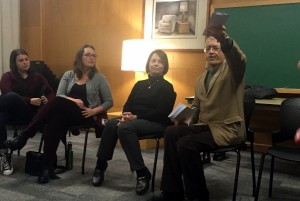 On Monday, February 1st the Carnegies were introduced to the Director of the Center for Democracy and Community Development, Walid Salem. Introducing him was Diane Baxter from the Anthropology Department and head of the University’s Middle East Studies program. Baxter gave us a brief background into Salem’s life story and his commitment to nonviolence that sends a message that all our struggles are one in the same. Salem then filled us in on the rest of his political activism and his international peacemaking efforts.
On Monday, February 1st the Carnegies were introduced to the Director of the Center for Democracy and Community Development, Walid Salem. Introducing him was Diane Baxter from the Anthropology Department and head of the University’s Middle East Studies program. Baxter gave us a brief background into Salem’s life story and his commitment to nonviolence that sends a message that all our struggles are one in the same. Salem then filled us in on the rest of his political activism and his international peacemaking efforts.
Salem explained his start into the political realms describing a turning point in his childhood. One day in 1967, Israeli troops stormed Salem’s elementary school out of a call that a few students were throwing stones. The troops did not take this lightly, and outright destroyed most of the school’s windows, including the classroom Salem was in at the time. It was at this moment when Salem considered his home country under occupation.
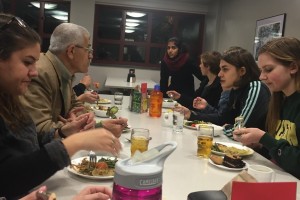 After living a childhood with tension of Israeli authority, Salem joined the Marxist-Leninist Party of Palestine in 1976. He explained his role primarily involved visibility, promoting the party in social and non-violent methods. He stressed that he never accepted to be trained on using weapons as he stated, “I do not believe in violence.” Yet despite being peaceful, he was thrown into solitary confinement for 56 days. The Israeli Government hoped this would make him confess names of members in the Communist Party. Salem refused. However he eventually left the party in 1995, wanting to focus more on the cooperation of Israel and Palestine.
After living a childhood with tension of Israeli authority, Salem joined the Marxist-Leninist Party of Palestine in 1976. He explained his role primarily involved visibility, promoting the party in social and non-violent methods. He stressed that he never accepted to be trained on using weapons as he stated, “I do not believe in violence.” Yet despite being peaceful, he was thrown into solitary confinement for 56 days. The Israeli Government hoped this would make him confess names of members in the Communist Party. Salem refused. However he eventually left the party in 1995, wanting to focus more on the cooperation of Israel and Palestine.
Since 1996, Salem has been working with Israeli colleagues to salvage a two-state solution to the Israeli-Palestinian conflicts he and millions have been living through for decades.
Salem talked about his involvement in the March 24th, 2004 meeting between Israeli members of Knesset and parliamentarians from the Palestinian Authority and Arab countries in Jerusalem to establish a joint forum. This initiative that he worked hard on was known as the Prague Forum. Salem explained that it began in February of that year with secret meetings of Israeli and Arab Countries sponsored by the Czech government. The purpose being to promote the Regional Peace Initiative, which is based on the Arab Peace Initiative. Salem was a key member in organizing this meeting. For more information about this inspirational man, you can see a 4 hour (16 page transcript) interview conducted by Just Vision.
